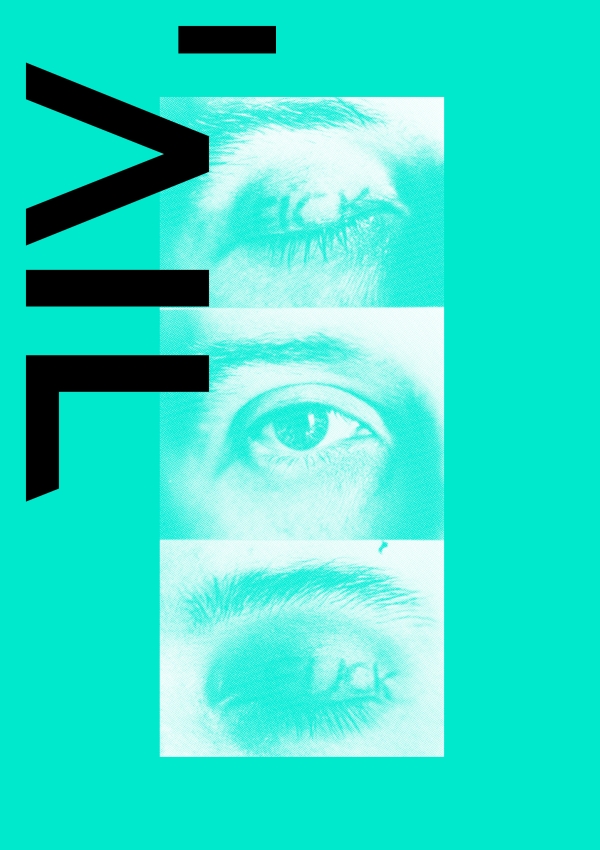In Conversation: Making & Memory
Curators
Valerie Messini and Brooklyn J. Pakathi in conversation with artist Jakob Lena Knebl and Ulrike Kuch, Rector of the University
of Applied Arts Vienna. Presented by the Weibel Institute for Digital Cultures as part of the exhibition Thinking Through
Weibel.
This discussion reflects on what it means
to revisit Peter Weibel’s early artistic practice through archival works and to position them alongside contemporary practices
that unsettle, expand, or depart from his concerns. It asks how such a juxtaposition can generate fresh perspectives on media,
politics, language, and play, and how contemporary artistic positions inflect and redirect these questions today.
The conversation considers how the archival selections foreground formative impulses in Weibel’s work, while the invited
artists open distinct lines of practice that move through other traditions and geographies. Together, these strands create
a space where early artistic propositions can be encountered in relation to ongoing inquiries.
The event also underscores
the importance of the University’s role in supporting artistic experimentation and of the Peter Weibel Institute for Digital
Cultures in shaping conditions for open, critical, and diverse trajectories. By bringing together the perspectives of rector
Ulrike Kuch and the perspective of artist Jakob Lena Knebl, the conversation highlights both institutional and artistic commitments
to sustaining forms of inquiry that remain unfinished, provisional, and vital.
In framing the exhibition, the opening
conversation invites the audience to think with the tension between archive and present practice. It sets the tone for Thinking
Through Weibel as a project that treats beginnings as openings for further exploration, where the past and present are placed
side by side to extend the possibilities of artistic thought.
Jakob Lena Knebl
Born in Baden,
Austria, in 1970, Jakob Lena Knebl is an artist, curator, and Professor of Transmedia Art at University of Applied Arts Vienna.
She studied fashion design with Raf Simons and textual sculpture with Heimo Zobernig. Her work examines the relationship between
art, design, and socio-cultural phenomena, creating immersive environments where identity and desire are sensually experienced
and renegotiated.
Ulrike Kuch
Ulrike Kuch has been Vice President for Social Transformation
at the Bauhaus University Weimar since June 2023. Kuch studied architecture at the Bauhaus University Weimar, the Teknillinen
Korkeakoulu Helsinki (now Aalto University), the Technical University of Berlin, and the Berlin University of the Arts. Ulrike
Kuch has been involved in the strategic development of the Bauhaus University Weimar and the shaping of democratic processes
as a member of the University Council, the Senate, the Senate Committee for Research & Projects, and as co-director of
the Bauhaus Institute for History and Theory of Architecture and Planning. Kuch's research focuses on architecture and image,
phenomenology of architecture, peripheral architectures, and global history of architecture. Ulrike Kuch is rector of the
University of Applied Arts since November 2025.
Valerie Messini
Valerie Messini is a registered
architect, digital artist and Senior Scientist at the Peter Weibel Research Institute for Digital Cultures. Her research dives
into the concept of nothingness, examining how digital technologies and digital design tools impact space, identity, and perception,
alongside the role of immersive media and virtual space in shaping our understanding and interaction with the digital realm.
Her PhD “void set – about emptiness in virtual space” was initially supervised by Peter Weibel and after his demise by Clemens
Apprich. She published in international journals and presented her research at multiple Conferences around Europe.
Brooklyn J. Pakathi
Brooklyn J. Pakathi is a transmedia artist based in Vienna whose practice
critically examines ontologies of emotion through material and spatial interventions. Influenced by phenomenology and affect
theory, their work explores configurations of intimacy, melancholy, and longing, questioning and reconfiguring the boundaries
between the tangible and the immaterial. As an independent curator, Pakathi's research focuses on methodologies of decolonization,
cultural justice, and alternative epistemologies that address technology and spatial practice.
This exhibition
Thinking Through Weibel is initiated by the Weibel Institute for Digital Cultures and emerges through collaboration with the
Institute Collection and Archive and the AIL, all part of the University of Applied Arts Vienna.




